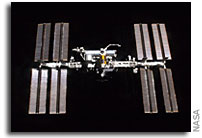Understanding The Value of Dissimilar Redundancy

U.S. and Russia Can’t Even Agree on How to Handle Astronaut Pee, Bloomberg
 Keith’s note: Too bad this reporter (or his editor) did not really understand what NASA was telling him. This article title is simply wrong. This has nothing to do with a disagreement. Rather it has to do with an agreement made in the 1990s allowing the Russians to use their heritage hardware and the U.S. using its existing systems, and then looking for ways that each approach can complement, supplement, or improve upon the other’s systems. If nothing else having more than one approach to things offers dissimilar redundancy – something that has saved the ISS program’s butt more times than many people know. In the mean time and engineering and operational synergy has emerged from the ISS program with unexpected wisdom that can be applied to future missions.
Keith’s note: Too bad this reporter (or his editor) did not really understand what NASA was telling him. This article title is simply wrong. This has nothing to do with a disagreement. Rather it has to do with an agreement made in the 1990s allowing the Russians to use their heritage hardware and the U.S. using its existing systems, and then looking for ways that each approach can complement, supplement, or improve upon the other’s systems. If nothing else having more than one approach to things offers dissimilar redundancy – something that has saved the ISS program’s butt more times than many people know. In the mean time and engineering and operational synergy has emerged from the ISS program with unexpected wisdom that can be applied to future missions.
Oddly, despite this totally inaccurate title, the author even notes the concept of dissimilar redundancy in his article: “NASA has decided to switch to silver-ionized water on future missions, but Carter says he likes that there’s both silver- and iodine-treated water aboard the ISS: “It really makes a lot of sense,” he says, “to have dissimilar redundancies in the space station in case one of the systems has problems.”









Bloomberg getting things wrong should be taken as a given.
Good friend of mine is a flight controller at JSC. He said, that NASA and Russia actually are pretty friendly on operations between the 2. Cooperation is pretty high. And both sides are easy to work with. When there are problems with working together, it tends to be on the governmental level.
That’s true about just about everything on this tiny planet. I’ve been to hot spots all over the place and found people to be friendly and open.
The media botches reporting on just about everything.
It’s probably safe to extrapolate how far the miss the target on topics about which you have some personal knowledge into a much wider view.
And it’s easy to understand why; I’ve been writing (an opinion piece) for a local paper for 7 years and see the amount of time allowed for a reporter to actually learn something about the story. They do what they can do.
What bugs me though is the smugness you see from some reporters, particularly on the national scene, as if they have become actual experts in anything.